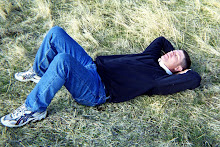
The 23rd Psalm is a psalm of comfort and assurance. As a child I recited it when I was afraid. As an adult too. Under fire in Iraq, my Christianity was stripped of its superstructure. All of the theological sophistication vanished like the threat of WMDs and my faith was momentarily compressed into its most basic expressions—the Lord’s Prayer and the 23rd Psalm.
With just six verses, the 23rd Psalm is the theological equivalent of the Gettysburg Address—short and profound. It’s a favorite at funerals, and for good reason. Not just because it mentions “the shadow of death,” but because it avoids easy answers to the problem of pain and suffering. It doesn’t give the glib responses and clichés we often hear from well-meaning believers, such as, “Everything will be OK,” “Every cloud has a silver lining,” or, “You’re young enough to have another child.” No, the psalmist is no Pollyanna. He’s not whistling in the dark to keep up his nerve. He offers no simplistic solutions or pious platitudes—not even the assurance that “God works all things together for good.”
Rabbi Harold Kushner, who wrote the book When Bad Things Happen to Good People, said in an interview “that the 23rd Psalm answers the question, how do you live in a dangerous and unpredictable world?” There’s no denying the darkness in the valley. Yet his solution is very simple: “Thou art with me.” The Shepherd-God—whom the psalmist addresses personally in verse 1, “the Lord is my Shepherd—he does not take away the danger, rather he leads us through it. Again Rabbi Kushner:
People who have been hurt by life get stuck in “the valley of the shadow,” and they don’t know how to find their way out. And that's the role of God. The role of God is not to explain and not to justify but to comfort, to find people when they are living in darkness, take them by the hand, and show them how to find their way into the sunlight again.
As much as we say we want our freedom and autonomy, there’s nothing more comforting in a crisis than knowing someone else is in charge. In all of our dark valleys, someone else is in charge. That’s one thing that stands out to me about this psalm—its focus on divine activity. It is God who takes the initiative. He’s the one making us lie down to rest in green pastures. He’s the one leading us beside still waters and in the right paths or “paths of righteous” as the King James has it. Over and over, God is the subject and we are the object.
The final verse contains a surprise. “Surely goodness and mercy shall follow me.” The Hebrew word for “follow” actually means “pursue.” God’s goodness is not shuffling along behind. It’s hot on our heels, chasing us like a hungry cheetah after an antelope. Fortunately for us, we get caught. God’s mercy allows us to “dwell in the house of the Lord forever.” This is a promise of the resurrection, when the people of God will be raised up to live with Him. It’s not the punishment we will escape or the perfection we will obtain that brings comfort. Rather, we’re told our reward in the world to come is being with the Lord, not just for a time but for eternity.
It’s not flattering being called a sheep, especially if you know how dumb sheep are, but given the biblical alternatives (wolves, goats) being a sheep isn’t all that bad, especially when your shepherd is God.
No comments:
Post a Comment